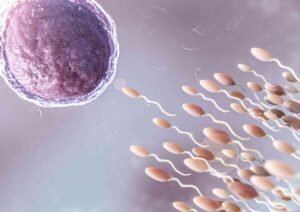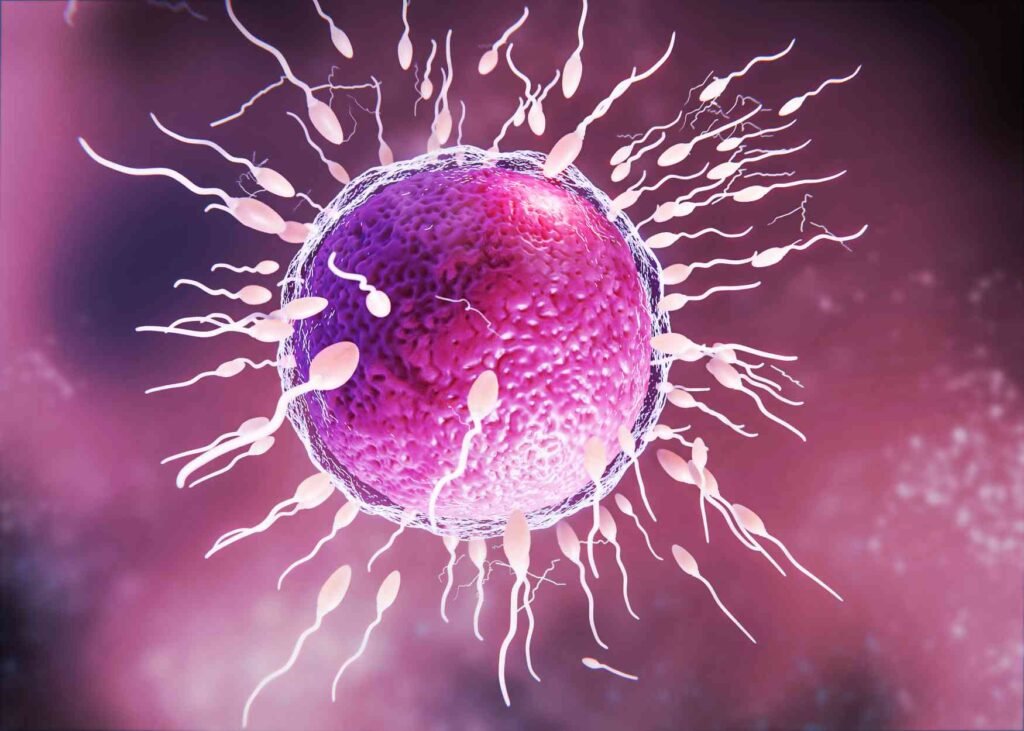Bringing a new life into the world is one of the most beautiful journeys many couples dream of. But for some, this journey comes with unexpected challenges. Infertility is more common than most people realize, affecting millions of couples across the globe. What makes it even more complicated is that fertility issues can stem from either partner—or sometimes both. That’s why it’s important to look at the big picture and understand the many factors that affect fertility in men and women.
In this blog, we’ll dive deep into the top 10 influences on fertility, breaking them down in simple, relatable terms. Whether you’re planning for pregnancy now, or just want to prepare for the future, knowing these factors can help you make more informed lifestyle and health decisions.

Why Understanding Fertility Matters?
Fertility is not just about biology—it’s a mix of health, environment, and even daily habits. For women, fertility is often thought of in terms of ovulation and egg health, while for men it’s about sperm production and quality. But that’s only part of the story. Hormonal balance, stress, sleep, and even certain medical conditions can play a role.
By being aware of the factors that affect fertility in men and women, couples can spot potential roadblocks earlier and, more importantly, take proactive steps toward improving their chances of conceiving.
Top 10 Factors That Affect Fertility in Men and Women
1. Age and Biological Clock
When it comes to fertility, age is probably the most well-known factor—and for good reason. Women are born with a fixed number of eggs, and as they age, both the quantity and quality of those eggs decline. Fertility in women typically peaks in their 20s, begins to decline in the early 30s, and drops more steeply after 35.
For men, age matters too, although in a slightly different way. Sperm production continues throughout life, but sperm quality—including motility (movement) and DNA health—tends to decline after 40. This can increase the time it takes to conceive and raise risks for certain genetic conditions.
2. Hormonal Balance
Hormones are like the conductors of the reproductive orchestra. In women, hormones regulate the menstrual cycle, ovulation, and the uterine lining’s readiness to support a pregnancy. Conditions such as Polycystic Ovary Syndrome (PCOS) or thyroid disorders can disrupt these cycles, making it harder to conceive.
In men, hormones like testosterone and follicle-stimulating hormone (FSH) play vital roles in sperm production. An imbalance—caused by stress, medical conditions, or even medications—can reduce sperm count or impact sexual health.
3. Lifestyle Choices: Diet and Exercise
What you eat and how active you are can have a huge impact on fertility. A diet rich in whole foods, healthy fats, lean proteins, and antioxidants supports both egg and sperm health. On the flip side, a diet high in processed foods, sugar, and unhealthy fats may increase the risk of hormonal imbalances and poor reproductive health.
Exercise is equally important. Moderate activity helps regulate hormones, improve circulation, and maintain a healthy weight. But here’s the catch—too much intense exercise can actually disrupt ovulation in women and lower testosterone in men. It’s about finding the right balance.
4. Weight and Body Mass Index (BMI)
Weight is one of the most underestimated factors that affect fertility in men and women. Being significantly underweight can disrupt ovulation, while being overweight can increase the risk of insulin resistance, PCOS, and irregular cycles in women. For men, obesity is linked to lower sperm quality and reduced testosterone levels.
Studies suggest that even losing 5–10% of excess body weight can dramatically improve fertility outcomes. It’s not about striving for a “perfect” body but rather aiming for a healthy, balanced weight range.

5. Stress and Mental Health
You’ve probably heard stories of couples who struggled with infertility for years, only to conceive after taking a break or going on vacation. While it may sound like a cliché, there’s truth to it. Stress affects the body’s hormone production, which can interfere with ovulation in women and sperm production in men.
Chronic stress can also reduce libido, making intimacy feel like a chore rather than a connection. Anxiety and depression may amplify the struggle, creating a cycle that makes conception even harder. Prioritizing mental health—through therapy, mindfulness, or relaxation techniques—can make a surprising difference.
6. Medical Conditions and Chronic Illnesses
Certain medical conditions directly affect reproductive health. For women, these include:
- Endometriosis
- PCOS
- Blocked fallopian tubes
- Thyroid disorders
For men, issues like varicoceles (enlarged veins in the scrotum), infections, or testicular injuries can impair sperm quality. Additionally, chronic illnesses such as diabetes, high blood pressure, or autoimmune diseases may influence fertility for both partners.
The good news? Many of these conditions are treatable, and seeking medical advice early can improve chances of conception.
7. Environmental Exposures
We often underestimate how much our environment impacts health. Daily exposure to toxins, pesticides, heavy metals, and even plastics can influence reproductive systems. For men, toxins can reduce sperm count and motility. For women, they can interfere with hormonal cycles and egg quality.
Even workplace factors—such as long-term exposure to radiation, chemicals, or high heat—can affect fertility. While you can’t control every environmental factor, making small changes like using glass instead of plastic or choosing organic produce when possible can help.
8. Substance Use: Alcohol, Smoking, and Drugs
This is a big one. Smoking reduces fertility in both men and women. In women, it accelerates egg loss and increases the risk of miscarriage. In men, it lowers sperm quality and increases DNA damage.
Alcohol, especially in excess, can also disrupt hormone levels and lower fertility. Recreational drugs like marijuana, cocaine, or anabolic steroids can significantly impair reproductive health too. Cutting back—or ideally eliminating—these substances is one of the most powerful ways to improve fertility.

9. Sleep and Circadian Rhythms
We rarely connect sleep to fertility, but it plays a major role. Poor or irregular sleep can throw off the body’s hormone regulation, affecting ovulation and sperm production. Night shift workers, for example, may experience more fertility challenges because of disrupted circadian rhythms.
Good sleep hygiene—regular schedules, limiting screen time before bed, and creating a restful environment—can support hormonal balance and overall reproductive health.
10. Timing and Frequency of Intercourse
It may sound obvious, but timing matters. Women are only fertile for a short window during their cycle, typically 5–6 days leading up to and including ovulation. Understanding this window and planning intercourse accordingly can dramatically improve chances of conception.
For men, frequent ejaculation supports healthy sperm turnover, but excessive frequency without rest can reduce sperm count temporarily. Striking the right balance—every other day during the fertile window—is often recommended.
Taking Charge of Fertility
The journey to parenthood can sometimes feel overwhelming, but knowledge is empowering. By recognizing the factors that affect fertility in men and women, couples can identify where they may need support or lifestyle adjustments.
Small steps—like improving diet, reducing stress, getting enough sleep, and addressing medical issues—can make a meaningful difference. And in cases where natural methods aren’t enough, modern fertility treatments offer additional pathways to parenthood.

Final Thoughts
Infertility is not a reflection of worth or effort—it’s a complex health condition influenced by many factors. While some elements like age can’t be changed, others—like lifestyle choices, stress management, and medical care—are within our control.
If you’re struggling, know that you’re not alone. Understanding the factors that affect fertility in men and women is the first step, but seeking support—from doctors, counselors, or support groups—can help guide you forward with hope and clarity.
Parenthood may not always happen on the timeline we expect, but with awareness, care, and sometimes medical guidance, the dream can become a reality.


